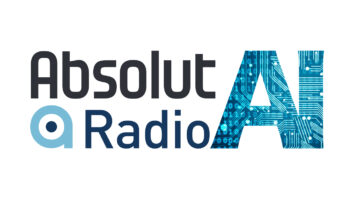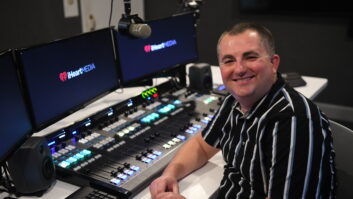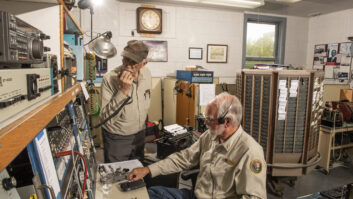With the Radio Show coming up this month, Radio World invited station managers from a variety of business settings and markets to comment on the issues of most concern to them right now. Here are three.
Dennis Weidler
General Manager
KICY(AM/FM)
Arctic Broadcasting Association Inc.
Nome, Alaska

Dennis Weidler. ‘The cost of music licensing is at the top of my concerns. I hope this quickly becomes a non-issue.’ As a radio manager, what’s the biggest challenge facing you for the rest of this year and early 2014?
Though both KICY AM and FM are commercial, over 80 percent of our operating budget comes from donations, mostly from the Lower 48. I travel three or four times a year, cooking wild Alaska Salmon in a series of fundraising dinners. Travel costs and logistics often present interesting challenges.
We are also staffed by volunteers. The Salmon Dinners are an important time for full-time volunteer and summer work team recruitment.
What do we need to do to improve commercial radio’s revenue performance?
Advertisers often need to be reminded that radio works. Then, we need to educate them how to make it work efficiently for them and to properly gauge results.
What are your sales people hearing on the street about radio?
We don’t have a sales staff, per se. We do receive statewide orders from our representative in Anchorage. While the economy in Alaska was largely unaffected by the financial collapse of 2009, many advertisers are still reluctant to invest in their businesses as they did before.
Unfortunately, our traffic director enters orders I know can’t work and won’t work for the client. So many advertisers and agencies don’t know how to make radio work like I know it can.
Locally, we are faced with huge energy costs with gasoline at $6.13 a gallon and heating oil just under $6. Even with those challenges, we are able to sell out our basketball and Iditarod coverage, as well as our Fishing Reports.
Has Pandora (and/or other new audio services) affected your business? How?
No. We have no 3G or 4G coverage in Bush Alaska, so devices are extremely limited to access audio content. We also have data caps, so streaming is limited. There is the promise of fiber optical cable coming to Bush Alaska, but we are still waiting.
Are there certain regulatory issues you are concerned about at the FCC, or changes you would like to see? What are they?
The cost of music licensing is at the top of my concerns. I hope this quickly becomes a non-issue.
Has your organization made any capital or facility improvements recently to improve your business, or have any planned? Briefly describe them.
We have upgraded our automation computers, as we were still using Windows 98 as the operating system. We have also taken delivery of new capacitors for our 50 kW transmitter. They are about five years beyond their life expectancy.
Has your station been approached by DigiMedia/Mission Abstract Data about automation licensing? What’s your stance on that?
Not yet.
Who is the radio person you admire most?
He’s now retired, but that would be Stephen C. Trivers of Kalamazoo, Mich., where I began my broadcast career over 40 years ago.
Fred Holland
General Manager/Managing Member
WTKI(AM/FM) and WEKI(AM/FM)
Focus Radio Communications
Huntsville, Ala.

Fred Holland. ‘Technologies exist, so let’s try some new things. Throw out a few old rules and release the beast.’ What’s the biggest challenge facing you in coming months?
It’s always more revenue. We are just approaching our fourth year in business after launching in an economic downturn. Fortunately for us, the numbers are moving in the right direction.
What do we need to do to improve commercial radio’s revenue performance?
Remember the soul of our medium is still local. Customer and listener access at the local level is critical if we are to fend off the other platform choices. It’s not rocket science.
What are sales people hearing on the street about radio?
Budgets are tight. We have to make a stronger case for staying the course. Good ideas still sell.
Has Pandora (and/or other new audio services) affected your business? How?
Not yet.
Are there regulatory issues you are concerned about at the FCC, changes you would like to see?
I’d like to see more attention devoted to the future of AM. It’s nice to have the translators. But the clock is running on the senior band’s survival as more people who grew up with AM are leaving us.
Commissioner Pai has started something and I hope there’s more momentum. Some technical requirements from 1933 should go. The problem can’t wait for the typical bureaucratic cycle. I don’t think there’s time.
Besides, it’s the one band nobody seems to be competing for. Technologies exist, so let’s try some new things. Throw out a few old rules and release the beast.
Has your organization made capital or facility improvements recently?
Having a physical presence in each city we serve fits with staying local. We continue to look for new ways to be live and mobile with on site show broadcasts that actually sound good. We hope to have another live studio to geographically accommodate our newsmaker guests.
Has your station been approached by DigiMedia/Mission Abstract Data about automation licensing?
We have not. This is a legal decision that is beyond our control. I just pray any decision will not be an undue burden on our industry. It will hurt the little guys the most if it is not handled well.
Who is the radio person you admire most?
Must I pick one?
Bill Dunnavant, former owner of Athens Broadcasting in the Huntsville/Decatur market, and Jerry Rogers, one of the last remaining local operators in Savannah, had the knack for bringing talented people together and letting them grow. Examples of their marks on our industry are scattered throughout the country from national to local.
Anything else fellow radio managers should know?
Radio will survive if we remember why we are here. Our stations first and foremost are vital links for the public. We serve them by informing, entertaining and helping them decide where they want to spend their hard earned money.
And … we get to make a living, too. Now, how cool is that!
Pete Booker
President/CEO
Delmarva Broadcasting Co. (with 13 stations)
Wilmington, Del.

Pete Booker. ‘Most clients on the local level still feel very good about radio and its value in bringing qualified prospective customers to their door.’ What’s the biggest challenge for the rest of this year and into 2014?
We are working hard in two areas: (1) We need to bring in more high-caliber professional business-to-business sellers — in the competitive multimedia landscape, top-notch pros who really understand consultative, relational client development. (2) We need to settle on a sustainable digital sales organization model.
What do we need to do to improve commercial radio’s revenue performance?
The industry has talked about true consultative selling and value proposition for years, but when push comes to shove, you see way too many sellers and GSMs caving on rates because it’s all about a revenue number, not a product value proposition. These people need to realize that they can make so much more, individually and as an organization, if they maintain a consistent devotion to maximizing the reasonable rates for everything we sell.
What are your people hearing on the street about radio?
Most clients on the local level still feel very good about radio and its value in bringing qualified prospective customers to their door. It is on us to continue to create great products that motivate response and get “butts in the seats.” Even agency folks, on an increasing basis, are feeling better about radio than a few years ago. Everyone realizes digital is the future, but they also know that there are multiple years of value still left in radio.
Have Pandora or other new services affected your business?
Our total tune-in (cume) is as good as it ever was. We do see certain demos listening less at certain times of day, but we can’t specifically tie it to Pandora. There are also some comments from time to time, but it seems as though it is shared listening, not that they are leaving us altogether. We believe that we will always have a combination of unique locally based and targeted products that the Pandoras of the world can never really match because they are going to build infrastructure in every market. That is what will carry local electronic media, digital and legacy.
Are there regulatory issues you are concerned about at the FCC, changes you would like to see?
As a company that also owns newspapers, we very much want to see the end of the antiquated and mis-focused newspaper crossownership rule. In this crowded age of thousands of media choices — local, regional and national, and rapidly declining print usage — there simply is no such thing as media concentration. Give us the chance to enhance the delivery of desired local media and we think we’ll show the value. At some point, it’s all going to be digital anyway, so let us build brands to get there.
Has your organization made capital or facility improvements to improve your business?
We are adding office and conference space to our Wilmington site and doing a full renovation including rebuilding five control rooms and adding a TV facility to leverage our new partnership with NBC10 TV in Philadelphia as the home of their Delaware Bureau.
We are also adding studio and office space in our central Delaware building as a result of the addition of Delaware 105.9, our successful news-talk station, on the air for about a year now. We have also put a new translator on the air for our 24/7 Spanish-language station with a new tower site, and we are building three other tower sites that are going to give us improved signals and for which we are acquiring lessees.
Has you been approached by DigiMedia/Mission Abstract Data about automation licensing?
Yes. Our position is that we don’t own any automation software; we are leasing someone else’s software with a valid license. Therefore, their claim shouldn’t be directed to us.
Who is the radio person you admire most?
I think there are many great people in our business. Many of them are not well known and toil in small markets.












